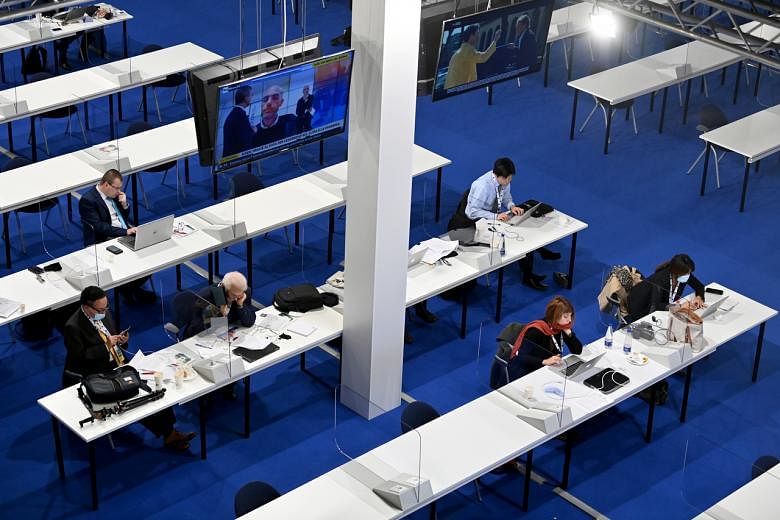ROME - Every journalist covering the weekend's Group of 20 (G-20) Leaders' Summit in Rome will have their attention drawn to two topics, both beginning with C.
The first is the Covid-19 pandemic, which has cast a long shadow over the proceedings. The G-20 nations, which represent the world's largest economies, have been urged to ensure equitable access to vaccines across developed and developing countries.
The second is the longer-term, but equally urgent matter of climate change. Italian Prime Minister Mario Draghi is determined that the G-20 should make a commitment about the need to limit global warming to 1.5 degrees Celsius above pre-industrial levels, which is considered one of humanity's boldest climate targets.
This year marks the first time since 2019 that world leaders have physically gathered for the high-level summit. Last year's summit, hosted by Saudi Arabia, took place entirely online.
With hundreds of journalists arriving in Italy from all over the world - including from countries where the Covid-19 situation has yet to stabilise - strict rules were in place to prevent the virus from spreading.
To enter the media centre, each journalist had to show a negative polymerase chain reaction (PCR) test result, taken within 48 hours of entering the country.
These were scrutinised closely when we collected our press passes, with staff scanning the QR codes on our notarised test results to make sure they were genuine.
As we had flown in several days beforehand, these results were no longer valid when the two-day summit started. We therefore had to go for an additional antigen rapid test (ART) at a swab centre set up for the media.
These ART results had to be validated against our passes and would expire after 48 hours, barring us from re-entry unless we took another test.
In the media centre, FFP2 masks - equivalent to the N95 commonly used in Singapore - were to be worn at all times. Each individual workstation was also separated from the next by plastic screens, reducing the chances of the virus spreading.
And with climate change so high up on the agenda for Italy's G-20 presidency, the summit's organisers were committed to walking the talk.

In a gesture that underscored the host's dedication to sustainability and a circular economy, journalists got a welcome pack made of recycled plastic bottles. It contained a solar-powered charger and a notepad and pens made of recycled paper.
Cutlery in the dining area was also made of biodegradable materials, with recycling bins set up prominently around the media centre.
Both Covid-19 and the climate crisis are immense challenges that will take extensive global cooperation to solve, and there are no easy answers.
But as they say, Rome was not built in a day.


